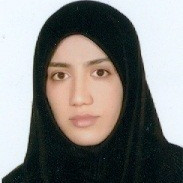Course Overview
Welcome to the Fall 2025 offering of the Generative Models course at SUT! We are excited to have you join us on this journey into one of the most dynamic and foundational fields in modern artificial intelligence.
- University: Sharif University of Technology (SUT)
- Department: Department of Mathematical Sciences
- Group: Computer Science (CS)
Course Description (Click to Expand)
This course provides a comprehensive, in-depth introduction to the principles, algorithms, and applications of generative modeling. We will explore a wide array of foundational and state-of-the-art architectures, beginning with core probabilistic concepts.
Key topics are structured around three main pillars:
- Foundational Generative Models: Including Autoregressive Models, Variational Autoencoders (VAEs), Generative Adversarial Networks (GANs), Normalizing Flows, and Energy-Based Models (EBMs).
- Modern Diffusion & Score-Based Models: A deep dive into Score-Based Models (SDEs), Flow Matching, and Diffusion Models, including their ODE/Flow formulations and applications like text-to-image generation.
- Large Language Models (LLMs): A significant module dedicated to the principles of LLMs and LMMs, their emergent abilities, and their capacity for reasoning.
Learning Objectives (Click to Expand)
Upon successful completion of this course, students will be able to:
- Understand the fundamental principles and theoretical underpinnings of major generative model families.
- Implement and train generative models for practical applications and problem domains.
- Master the core concepts and mathematical foundations required to analyze and compare different model architectures.
- Develop the theoretical knowledge necessary to read, understand, and critically assess current research papers in the field.
Instructor

Dr. Fatemeh Seyyedsalehi
Instructor
Course Schedule
Lectures & Exams Schedule
| # | Topic of Session | Material | Date |
|---|---|---|---|
| 1 | Introduction | Topic 1 | ۲۰ مهر |
| 2 | Intro. to Probabilistic Graphical Models | Topic 2 | ۲۲ مهر |
| 3 | Intro. to Probabilistic Graphical Models | Topic 3 | ۲۷ مهر |
| 4 | Intro. to Probabilistic Graphical Models | Topic 4 | ۲۹ مهر |
| 5 | Autoregressive Models | Topic 5 | ۴ آبان |
| 6 | Autoregressive Models | Topic 5 | ۶ آبان |
| 7 | VAEs | Topic 6 | ۱۱ آبان |
| 8 | VAEs | Topic 6 | ۱۳ آبان |
| 9 | GANs | Topic 7 | ۱۸ آبان |
| 10 | GANs | Topic 7 | ۲۰ آبان |
| 11 | Normalizing Flows and Invertible Models | Topic 8 | ۲۵ آبان |
| 12 | Normalizing Flows and Invertible Models | Topic 8 | ۲۷ آبان |
| 13 | Energy Based Models | Topic 9 | ۲ آذر |
| 14 | Energy Based Models | Topic 9 | ۴ آذر |
| 15 | Score Based Models and SDEs | Topic 10 | ۹ آذر |
| 16 | Score Based Models and SDEs | Topic 10 | ۱۱ آذر |
| 17 | Midterm Exam |
Details | ۱۶ آذر |
| 18 | Score Based Models and SDEs | Topic 10 | ۱۸ آذر |
| 19 | Flow Matching | Topic 11 | ۲۳ آذر |
| 20 | Flow Matching | Topic 11 | ۲۵ آذر |
| 21 | Denoising Diffusion Models | Topic 12 | ۳۰ آذر |
| 22 | Evaluation of Generative Models | Topic 13 | ۲ دی |
| 23 | LLMs (PEFT) | Topic 14 | ۷ دی |
| 24 | Intro. to LMMs (Multi-Modal Models) | Topic 15 | ۹ دی |
| 25 | LLM Emergent Abilities | ۱۴ دی |
|
| 26 | LLM Emergent Abilities (Reasoning) | ۱۶ دی |
|
| 27 | RAG | ۲۱ دی |
|
| 28 | RLHF | ۲۳ دی |
|
| # | Final Exam |
Details | ۸ بهمن |
Homeworks Schedule
| Homework | Release | Deadline |
|---|---|---|
| Homework 1: PGMs, ARs | ۷ آبان |
۲۳ آبان |
| Homework 2: VAEs, GANs, Flows | ۲۵ آبان |
۱۰ آذر |
| Homework 3: EBMs, SBMs, Flow Matching | ۱۵ آذر |
۵ دی |
| Homework 4: Diffusion, Evaluation | ۶ دی |
۲۱ دی |
| Homework 5: LLMs, LMMs | ۲۲ دی |
۱۰ بهمن |
Logistics & Policies
-
Lectures: Held on Sunday and Tuesday from 10:30 to 12:30 in the Department of Mathematical Sciences, classroom 211.
-
Late Policy: You have a total budget of 15 slack days for the semester, which can be used for any homework (practical or theoretical) without penalty.
- There is a maximum limit of 5 slack days per assignment. Submissions after 5 days will not be accepted, as solutions may be released.
- Once your 15-day total budget is exhausted, any further late submission (within the 5-day window) will be penalized 2% of the assignment's grade for every hour of delay.
-
Collaboration & Resources: Collaboration on assignments is permitted. However, your final submission must be written entirely by you. You must clearly cite the names of any collaborators and list all external resources (outside of course materials) that you used.
-
Practical Assignments: Practical (coding) assignments will include an oral defense. You will not receive a grade for the practical portion if you cannot demonstrate sufficient mastery of your code during the defense.
-
Support: You can ask questions on Telegram Group or email the course instructor or head TA for office hours.
Grading
The grading for the Generative Models course is structured as follows:
| Assessment Component | Points |
|---|---|
| Homeworks (5 Theoretical & Practical HWs) | 10 + [1 Extra Point] |
| Midterm | 4 |
| Final | 6 |
| Total | 20 + [1 Extra Point] |
Head Assistant

Maryam Rezaee
Head TA
Teaching Assistants
-

Firoozeh Abrishami
Teaching Assistant
-

Shaygan Adim
Teaching Assistant
-
Mohammad Ali Banayeeanzade
Teaching Assistant
-
Mahshid Dehghani
Teaching Assistant
-

Amir Mohammad Fakhimi
Teaching Assistant
-

Sara Karimi
Teaching Assistant
-

Mohamad Hosein Mehdikhani
Teaching Assistant
-

Ramtin Moslemi
Teaching Assistant
-

Pooriya Safaei
Teaching Assistant
-
Ali Salimi
Teaching Assistant
-

Mohammad Shirkhani
Teaching Assistant
